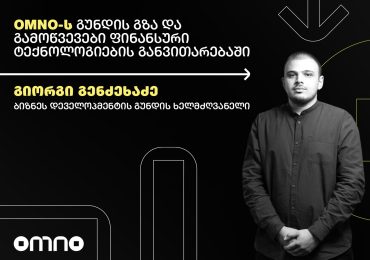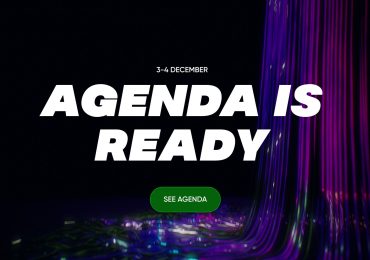Around 20 years ago or so, when I was serving my sentence in a high-security prison, called school (interestingly and conveniently, located in one of the city’s most crime-induced areas), my cell-inmate, sorry, classmate, with his all-worldly indifference towards the idea of getting educated, turned his second-hand all-scratched yellow-fat-strained biology book to me and uttered — “rodents.. and why the hell do those hideous squirrels collect nuts?”
Don’t get me wrong, please, it is not that at the age of 10–11 I was suffering from the excessive confidence or self-esteem or even from the abnormal scale of knowledge about rodents (at that time I was still a well-groomed child and a restrained persona with the curious and stoic soul yet unmarked from the fleshly vanity).. but the question got me! I thought, inadvertently, there should had been something intelligent about squirrel’s behavior — otherwise, it would go unnoticed and not cause a mental dissonance in my light-headed classmate’s slow-moving, inert synopses and a disgust accompanied with the ultimate disappointment towards the “unnecessary” hustle of this innocent animal, which also happens to be unbearably fluffy to say the least.

So, why do squirrels collect nuts? — Squirrels collect and store nuts so they’ll have food to last through winter.
Fast forward and now, in around 20 years from that pivotal, awe-inspiring, and archetypical encounter with my classmate, we all came to face an unprecedented multi-layered crisis in form of a pandemic which caught us completely unprepared, necessitous, stranded in the waives of uncertainly, questioning ourselves — why didn’t we do the same? Well, most of us indeed didn’t, some of us to some extent, but certain agents practiced the logic flawlessly to perfection. Exampli gratia — when Alexander Hamilton and Aaron Burr founded their rival banks in the 1780s, their charters required them to hold capital in face of an unexpected “winter”, but the rules were far simpler than the hundreds of pages of regulations facing today’s banks — density of today’s complexity in regulation is directly proportional to the volume and importance of the century-long practice, accumulated experience, good thought and reasoning. The ECB explains that capital is a high nutritious-value ingredient while related regulation prescribes the minimum required intake for banks to achieve long-term health benefits which has a potential systemic bearing overall on the sector on the (I would say “macro” but given how things in general are organized in this lyrical extravaganza, called life, it really is a…) jumbo level. To put it simply, capital acts as a reserve/buffer/cushion against losses — “If the loans don’t pay off, the value of the equity gets reduced, but there will (might?) still be enough assets to pay off the depositors so the bank doesn’t get closed down.” Just like that!
So, why do Banks need capital requirements? — Banks set aside enough capital to cover unexpected losses and keep them solvent in a crisis.

Now, if you’re good in comprehension of the read text, which seems to be an Achilles Heel overall of the Georgian society (and last 10 years of the international experience gives me a liberty to say — of the modern average anthropoid, generally), you should be able to reconcile above two sentences marked in Italics and put the equation sign between the key words correctly:
- Squirrels = Banks;
- Nuts = Capital;
- Winter = Crisis.
At this point, I do hope that the idea becomes immediately attractive — building buffers contributes to keeping oneself stoic in the face of a calamity. I.e. in spite of the heavier than usual winter the squirrel is all stocked up — videlicet — buffers are building blocks of resilience and acquiring this feature in todays’ tempestuous existence is a movies’ equivalent of gaining a superpower. As Merriam-Webster defines, resilience is the ability to recover from or adjust easily to misfortune or change. The term was introduced into the English language in the early 17th century from the Latin word “resilire”, meaning to rebound or recoil. There is no evidence of the word being used in any scholarly work until Tredgold (1818) introduced the term to describe a property of timber, and to explain why some types of wood were able to accommodate sudden and severe loads without breaking (Torrens Resilience Institute, 2010). As we deliberately started surfing from biology to banking and towards dendrology, it is time to downscale to the study that gives us a potential to have its teachings interpreted into as many kinds of versions as many average anthropoids (struggling with the comprehension of the read text) are there in the universe; tailored to the individual survival –
And.. “even though I walk through the valley of the shadow of death, I will fear no evil, for you are with me; your rod and your staff, they comfort me.”
Psalm 23:4

Re-read the Psalm 23:4 once again and then let us unfold its cardinal constituents from the lens of the reality we are all finding ourselves in today (i.e. we are going through “the valley of the shadow of death” a.k.a. COVID-19 crisis, looking for the “rod” ? and “staff” ? to comfort ourselves with). We nominated COVID-19 era as a multi-layered crisis potentially threatening at minimum your health, your job and as a result your mental well-being. Some people claim that the pandemic is something unexpected so not planning for it is excusable — maybe — however, its severeness, at least was quite predictable. As a result of the design of the modern world, its destructive repercussions would multiply due to the elevated social connectivity, physical mobility, economic/sectorial dependencies and overall the increased speed of the everyday life — indeed, it would eventually ring your doorbell and your relative stoicism to it would then be measured with the relative resilience you’ve built (brick by brick / buffer by buffer) — as in the end, each and every beat of buffer/cushion can be viewed as an insurance premium that you’ve paid yourself forward for the “unexpected” cases like these (but seriously, the UN estimates the global average life expectancy of 72.6 years for 2019 — good for us! But do you really think that your “lucky bastardeness” won’t be affected by at least a medium-strength crisis during that length of your potential lifetime? Well, in my 30 years, I already lived through three — one local crisis that manifested itself in a country-wide hunger during 90ies, and two global crises — one of them regarded as the global financial crisis of 2008 which coincided with the Russian occupation of Georgia’s territories in the same year and another one which we live through just right now. There is a fine line between excessive confidence and fatal stupidity). Now, buffers can come in all sorts of forms, shapes and sizes — for squirrel it is a nut per each winter day, for banks it is capital — while for average anthropoid we could deduce it to three main directions that the current crisis threatens in particular:
“Your rod” — physical resilience
Indeed buffers come in all sorts of forms, shapes, rituals, engagements, hobbies (to make them even fun), and as trivial as it can sound — it can be an apple a day, 30 push-up every other day, not eating that cake, practicing gratification, going for a “Nuru Massage”, not missing your annual health check-ups, brushing teeth, practicing general hygiene, not sitting all day long — not standing all day long, counting your calorie intake or balancing your calorie intake, sleeping well, sleeping on your left side, not getting angry, keeping your ego on check, meditating, putting your legs above your heart level for just a few minutes a day, cutting back on sugar, not getting yourself burned when tanning, loving and being loved, getting the needed vaccines, etc.. — Covid or no Covid you need those things anyway and in a face of a crisis you will be at least twice more happy that you have practiced those “nothing new” rituals, paid yourself forward through small insurance premiums’ contributions with which you made “your rod” stronger. There is another angle to it — e.g. compared to other OECD countries; U.S. healthcare costs are one-third higher or more relative to the size of the economy. According to the CDC, during 2015 health expenditures per-person was nearly USD 10k on average, with total expenditures of USD 3.2 trln. or 17.8% of GDP. In such occasions you may simply not afford to dial a 911 for a “meat wagon” (yes, I mean ambulance) and in many less developed countries, most of the doctors are just adult versions of those less-educated classmates who in their teen ages used to diss the smart behavior of a squirrel — you simply would not trust lending your biology book to them, not to mention your life.
“Your staff” — material resilience
There is a huge difference between a household that can go at least six months solely on their cash emergency and the one which is one broken fridge away from the closure. In the context of the material resilience, at the high level, the behavior of the average anthropoid should be similar to that of a bank — staying aware, keeping its main assets at manageable risks, income sources diversified, cautious towards the leverage, i.e. paying attention to capital, remembering that cash is king. In case sophistication allows, then set of rules of thumbs, principles and behaviors can be worked out based on deep analysis on the households’ financial stance — and, yes, as dull as it may sound, each law-abiding household should produce a household-based set of financial statements — retrospectively the Balance Sheet, Income Statement, Cash Flow and Changes in the Equity / or movements in Net Worth — prospectively also budget for the next year (at least) counting in inflation and other relevant fundamentals having a significant bearing on one’s life and the track of the actuals vs projections if discipline level is also accommodating. In reality, there is one question to be asked and answered — what does your life for the next six or twelve months look like should your current sources of income immediately disappear (and remember, that exactly and actually happened to thousands of people around you amid COVID-19 crisis)? If you still see yourself as a “going concern” then congrats, “your staff” is strong and your material resilience is dully respected.
“Your comfort” — mental resilience
But this one is indeed easy — physical and material resilience will eventually translate into a mental resilience. Starting sewing a life vest for the future flood is as well a good idea as passing on the next fast-food office-lunch initiative — just to make sure that your waistline remains at a good fit vis-à-vis that life vest.

















